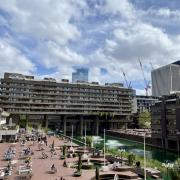
Did you know that 7,500 people sleep rough on the streets of London every year? They come from every walk of life, and become homeless for a range of reasons. They are people just like us who have fallen on hard times. The breakdown of relationship is one of the biggest causes of homelessness, and many people become homeless after an addiction has taken over their lives. Others are escaping abuse and have nowhere to go. Sleeping rough has serious consequences and leaves people facing risks that we must all find unacceptable. Homeless people are 13 times more likely to be a victim of violent crime than the general public, and 47 times more likely to be a victim of theft. On average, homeless people die at just 47 years old, compared to a life expectancy of 81 years for the average citizen. A homeless rough sleeper is also 35 times more likely to commit suicide than any other group in the population.
This is just the visible face of the problem though; when most people think of homelessness they imagine someone sleeping in a doorway in a grubby sleeping bag. However, the vast majority of homeless people suffer out of sight and out of mind. A hidden form of homelessness is rife and it affects 400,000 people in the UK at any given time. In London, the social crisis is particularly acute as affordable accommodation is so scarce. The pressure on charities and local authorities is overwhelming. Tonight, thousands of Londoners have no choice but to sleep in temporary or overcrowded accommodation including in night shelters and hostels. Many will eat their only meal of the day at a soup kitchen before going ‘home’ to a tent, a squat without running water or electricity, or to sofa surf at friends’ houses. Living in such temporary and unstable conditions leads to further problems. For example, how can you hold down a job if you don’t know where you will be staying from day to day, or if you cannot sleep because of overcrowding or worry that your belongings will be stolen in the night? Not having a stable home puts a tremendous strain on relationships, threatens mental health, erodes dignity and leads to further problems such as illness, loneliness and social deprivation.
It’s not enough that I just write this article to highlight the issue though, or that you just read it in the comfort of your warm home and feel bad for a minute or two. We all need to act and there is something everyone can do. First things first, we need to change attitudes towards homeless people – they have a right to be treated with the same respect as anyone else. I spoke to homeless people in Ealing and heard how they felt invisible to members of the public, experienced humiliation at being refused entry to shops and cafes, and were frequently made to feel like second class citizens when accessing public or charity provided services. Almost everyone had been insulted by the public and one person even told me he had been urinated on by people leaving a pub. I was almost in despair but I dared to ask if there were any stories of kindness or compassion. They seem small things and on their own they can’t solve the problem but I now know for sure that it does make a difference when a stranger says hello, makes eye contact or offers a smile. The giving of money wasn’t mentioned but the offer of a cup of coffee on a cold day is appreciated. So people of London please be kind, be generous minded and don’t be afraid of the people you step over on your way into the tube station. You never know but life could throw you a curve ball one day.



























